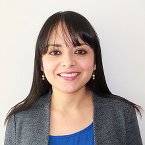The CRWJ Affiliate network is comprised of ÐÓ°ÉÂÛ̳ Group researchers whose work focuses on the theme of women and jobs. The Center features and promotes the visibility of its Affiliates' work. The Affiliate network serves as a community of practice for generating knowledge exchange and cross-sector collaboration within the ÐÓ°ÉÂÛ̳, and as a means to connect with external researchers, policy makers, and other stakeholders who aim to improve the global ¡°jobs landscape¡± for women.
Center for Research on Women and Jobs (CRWJ)
Affiliates
Profiles
-
Sofia AmaralSouth Asia Gender Innovation Lab
Sofia¡¯s research focuses on gender-based violence and on women¡¯s access to employment, markets, and justice. Her work examines structural barriers to mobility and legal recourse.
-
Middle East and North Africa Chief Economist Office
Leila¡¯s work centers on the economic empowerment of women in MENA, exploring the effectiveness of interventions that alleviate childcare constraints and provide financial access.
-
 Development Impact Group
Development Impact GroupGirija studies gender, violence, and transport in urban areas with a focus on harassment in public spaces and the effectiveness of potential solutions on women¡¯s physical and economic mobility.
-
Maurizio BussoloSouth Asia Chief Economist Office
Maurizio¡¯s peer?reviewed research quantifies how social norms, labor?market institutions, and structural change shape women¡¯s employment and earnings, using causal evidence from South?Asia and beyond.
-
Development Impact Evaluation Program, IFC
Rachel uses RCTs to study topics including innovations in (W)MSME finance, procurement and digital skills trainings for women entrepreneurs, women¡¯s employment in manufacturing, and childcare provision.
-
Jacob De HoopGlobal Poverty and Equity Practice, Latin America and the Caribbean Gender Innovation Lab
Jacobus (Jacob)¡¯s research on women and jobs currently focuses on the labor market outcomes of women in high violence contexts and the labor market outcomes of women who raise children alone.
-
Africa Gender Innovation Lab
Clara researches social protection, socio-emotional skills, and climate change - including the impact of agricultural risk management and technology adoption - to advance women¡¯s economic empowerment.
-
Development Research Group
Lelys studies how interventions like cash transfers or childcare services support women¡¯s empowerment and wellbeing. She also seeks to improve the measurement of women¡¯s work and employment.
-
 Poverty and Equity Global Practice
Poverty and Equity Global PracticeAnna¡¯s work integrates quantitative and qualitative methodologies, including behavioral insights. She has examined the impacts of gender-responsive fiscal policies and legal reforms, as well as gendered laws.
-
Development Research Group
Devaki¡¯s research examines the various socio-economic barriers that women face and their impact on women's labor force participation and marriage market outcomes.
-
 Development Research Group
Development Research GroupXavier¡¯s research focuses on access to financial services, financial consumer protection and community driven development.
-
Alev Gurbuz CuneoWomen, Business and the Law
Alev conducts research on the laws benchmarked by Women, Business, and the Law. Her work focuses on gender-based violence, mental health, social norms, labor market, and financial inclusion.
-
Development Impact Group
Sylvan's research on gender focuses on three key areas: the impact of childcare burdens on women, children, and families; women's access to emerging digital public and private services; and survey methodology.
-
Hillary JohsonEast Asia and Pacific Gender Innovation Lab
Hillary's research focuses on how childcare and eldercare services can help women access jobs. She also explores occupational sorting, socio-emotional skill development, and enhancing women's business performance.
-
Leora KlapperDevelopment Research Group
Leora researches the impact of digital development on household finance and employment, especially for women. She studies how women make and receive payments, save, borrow, and access financing for their businesses.
-
Development Research Group
Tatjana¡¯s research studies how the evolving role of women in the labor force shapes countries¡¯ structural transformation and economic growth.
-
Estelle KoussoubeAfrica Gender Innovation Lab
Estelle studies youth employment and girls¡¯ empowerment in Sub-Saharan Africa, covering skills training, labor access, childcare, GBV prevention, and agriculture.
-
Development Research Group
Megan's work focuses on the constraints women face in starting and growing microenterprises and the role microenterprise income plays in the economic lives of rural, low-income households.
-
Social Protection and Jobs Global Practice
Alicia¡¯s research centers on employment policies, labor market transitions, and skills development, with an emphasis on initiatives to support female labor force participation, online job portals, public works, and micro-entrepreneurship programs.
-
Development Research Group
David studies microenterprise growth and employment. Recent work examines gender differences in training and grants for entrepreneurs, and job access interventions in higher-income countries.
-
Joao MontalvaoAfrica Gender Innovation Lab
Joao studies how empowering women shapes economic development in Sub-Saharan Africa, testing interventions to expand economic opportunities and boost women¡¯s productivity and incomes.
-
Gender Group
Ana Maria¡¯s research focuses on social norms, childcare, socioemotional skills, hiring biases, and other barriers related to female labor force participation and access to jobs.
-
Development Research Group
Oyebola studies different ways of improving women¡¯s economic outcomes such as the role of social protection programs as well as the impact of digital technologies.
-
Sreelakshmi PapineniAfrica Gender Innovation Lab
Sreelakshmi¡¯s research uses field experiments and observational data to understand gender-based constraints in development programs on entrepreneurship, social protection, adolescence, and agriculture.
-
Development Research Group
Louise¡¯s research examines labor market dynamics in low-income settings, the distributional impacts of labor policies, and interventions aimed at reducing gender disparities in employment and income.
-
Development Research Group
Steven Pennings is a macroeconomist interested in the drivers of long-run economic growth in developing countries, including the effects of higher female labor force participation.
-
East Asia and Pacific Chief Economist Office, East Asia and Pacific Gender Innovation Lab
Elizaveta studies how policy, macroeconomic conditions, and norms shape women¡¯s time use across market and domestic work, and how their choices affect themselves, others, and broader economic growth.
-
Rachael PierottiAfrica Gender Innovation Lab
Rachael¡¯s research seeks to understand and identify effective solutions to address gender inequality in earnings opportunities, property rights, and labor market trajectories for youth.
-
Africa Gender Innovation Lab
L¨¦a studies factors shaping women¡¯s labor market participation in Sub-Saharan Africa, focusing on education, skills, and training¡ªespecially for young women.
-
Middle East and North Africa Chief Economist Office
Broadly speaking, Jesica is interested in understanding the determinants of the allocation of female talent in developing countries (in and out of the labor force, across occupations).
-
 Development Impact Group
Development Impact GroupIva studies social and economic barriers that women and girls face in low- and middle-income countries and innovative solutions to help young women transition from school to employment.
-
Ana Maria Tribin UribeWomen, Business and the Law
Ana Maria¡¯s research explores the intersection of gender and labor, examining how social, cultural, and institutional factors shape women¡¯s opportunities.
-
Gender Group
Diego¡¯s research agenda focuses on interventions to address the differential constraints faced by women-led businesses, the transition from school to work, and financial inclusion.
-
Development Impact Group
Hannah works at the intersection of firms, markets, and gender, studying how to increase women¡¯s leadership and labor force participation, and how workplace roles shape household decision-making.
-
 Julia VaillantAfrica Gender Innovation Lab
Julia VaillantAfrica Gender Innovation LabJulia¡¯s research focuses on closing gender gaps in Sub-Saharan Africa. She evaluates innovative interventions to empower women by increasing their earnings opportunities and agency.
-
Mariana ViollazGender Group
Mariana examines women¡¯s access to jobs, the effects of digital technologies and flexible work arrangements on their labor opportunities, and the influence of social norms in shaping women¡¯s outcomes.
-
South Asia Gender Innovation Lab
Kate leads an initiative on job search platforms and gender. She has also published several experimental studies on women's physical mobility and its impact on economic participation.































